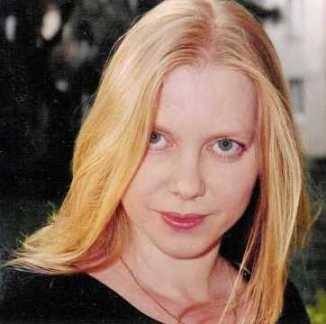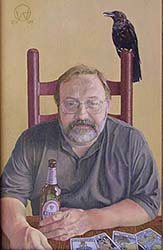- I am machine.
- Day one:new-cycle:repeat
- Bright cold and grey as slate the day begins with a task, then another, then another, then more.
- I am machine
- Day two:new-cycle:repeat
- Stretching out in front
- Infinity contracting:walls closing in - the sky descends
- Machine, I am
- Day three:new-cycle:repeat
- Analyse structure:fault found:resolve - error:functionality impeded
- Reset
- I am machine
- Day one:new-cycle:repeat
- Bright cold and grey as slate the day begins with a task, then another, then another, then more.
- I am machine
- Day two:new-cycle:repeat
- Stretching out in front
- Infinity contracting:walls closing in - the sky descends
- Machine I am
- Day three:new-cycle:repeat
- Analyse structure:fault found:resolve - error:functionality impeded
- I am machine… rm -r machine error
- machinemachinemachinemachinemachinemachinemachinemachinemachinemachinemachinemachinemachinemachinemachinemachinemachinemachinemachinemachinemachinemachinemachinemachinemachinemachinemachinemachinemachine
- Log report:Reset
Dolorosa
Wednesday, 18 March 2015
I
Friday, 6 March 2015
A True Story from the Stone Mountain

As I grew I asked about the strange shape of the far/near horizon. The general theory amongst the kids my age was that it was a Norman fort or a prehistoric burial mound, some also said that it was where the Romans kept an eye on the subjugated but ever rebellious Silures -the tribe who gave their name to the nearby Roman fort of Isca Silures (which later became the birthplace of Arthur Machen, Caerleon). It turned out that all of these theories were right and that the site had been in use from the Iron Age through to the Norman invasion. Until relatively recently it was still a site of a pilgrimage of sorts for local people on Good Friday.
Whilst I found the history of the site interesting my young mind was turned more and more by the folklore surrounding the mountain. Folklore that was, in its entirety, dark and grim and therefore of great fascination for a prepubescent boy such as I was. When I was 10 my mother, who worked in the giftshop of the local museum, brought me home a pair of books by local author Alan Roderick: Ghosts of Gwent and Folklore of Gwent. I was thrilled by these books and read them until the binding crumbled and they were but a collection loose leaves. The volume on folklore had plenty to say about Twmbarlwm.
According to Roderick in the early 1800s (the exact date escapes me though I think it was the 1830s) a local antiquarian led a team of navies up the mountain to excavate the mysterious mound. It was a clear summer's day as they climbed from the village of Risca yet as they approached the summit the sky rapidly darkened as storm clouds rolled from all directions. As the team neared the summit lighting began to strike the ground all around the twmp causing the superstitious navvies to flee and the excavation to be abandoned. To the best of my knowledge there still hasn't been an archaeological investigation into the mound itself.
Some years after the aborted excavation it seems that people noticed that the number of honey bees in Britain had dropped drastically. Their whereabouts were soon discovered when thousands upon thousands of bee corpses were discovered to be covering the twmp and the top of the mountain. As if all the bees in Britain had migrated their and fought to the death.
Then there were also the tales of missing children on the mountain. In stories dating back to, at least, the 18th Century children playing on the slopes of the mountain hear the sound of music, and no I don't mean Julie Andrews, drifting on the breeze. One of the children inevitably goes to find the source of the music and is never seen again.
Like I said, dark stuff.
As I grew into a teenager the place continued to dominate my mental landscape and, as a young teen, friends and I would cycle up the mountain and go camping on its slopes. Then I grew older and discovered the various alternative subcultures that thrived in the local area I began experimenting with all the usual things that kids experimented with at that age -drink, drugs, and as much sex as possible.
Being as this was South Wales one of the main recreational drugs that we experimented with were the local mushrooms -Psilocybe semilanceata or Liberty Caps. 'Camping trips' soon became a regular feature of autumn and early winter for me and my friends. We would spend days wandering the fields picking mushrooms in order to make insanely strong 'brews' from hundreds, sometimes thousands, of the strange little mushrooms. We would then go camping in the coniferous woodlands below the twmp and spend an evening expanding our consciousness. In fact I had my most powerful and vivid hallucinogenic experience on that mountain, at a friend's bachelor party, which had me seeing clockwork maggots crawling red hot from the embers of the fire, stars swirling in the night sky above our clearing and figures on horseback ducking impossibly through the trees around us.
These experiences were all fun and games as I completely understood that the things I was seeing and hearing around me were the product of imagination and Wales' most famous botanical product. However one evening we did have a genuinely strange experience. An experience that has many explanations, none of which are satisfactory.
It was maybe 17 years ago that this occurred and it was right at the end of mushroom season so it would have been early November. We had the last of our super brews bottled and were just waiting for an excuse to indulge. Just such an excuse cropped up, though I forget what it was, and so we decided to drive up the mountain one Friday night. Five of us drove up the mountain to start setting up the camp at around 9 o'clock in the evening. Four of us got a fire going, gathered enough firewood so that we wouldn't need to gather any whilst we were altered, and the fifth returned to town to pick up the last of our party who had been working in a local pub.
Well, it turned out that our bartender friend had gotten home from work and fallen asleep on the sofa. Our driver having something of a crush on her decided to wait, rather creepily now I think about it, outside her house until he could wake her up.
Whilst we were waiting we opened a beer and those that smoked rolled a couple of spliffs to pass the time. After a while of sitting around chatting we inevitably experienced periods of quiet where our gazes were drawn hypnotically to the fire. It was during one of these lulls in conversation that we heard twigs snapping in the forest around us. Now bear in mind that it was approaching midnight in November and we were a good half an hours walk away from the nearest houses. So the sound of multiple people walking in circles around our camp did unnerve us slightly.
We shone the one torch we had into the narrow gaps between the oh so straight trees around us but we couldn't see anyone, even if we shone the torch where just a moment before we had heard a twig snap. Over and over this happened and then, as we were starting to get seriously freaked out and called into the night "Hello, hello, who the fuck's there?" We heard it. A child giggling -first to one side of us, then the other. A high pitched giggle that would sound right and natural on a primary school playground but at midnight in November far from the nearest houses sounded decidedly unnatural.
Those giggles were the final straw and we poured water over our fire and struck out for the road. As we walked in single file following Ryan, the only one of us who had thought to bring a torch, the sounds of people running around us continued, as did the giggling. It would get nearer then farther making us jump and urging us on until we were as close to running as we dared in the dark.
It was such a relief when we finally cleared the trees and bundled out into an open field bathed silver by the moon. We walked rapidly away from the woods glancing back over our shoulders at the giggling woods as little voices rang out "Goodbye! Goodbye!"
That was the last time we went camping on Twmbarlwm.
Wednesday, 4 March 2015
Doug Talks Weird
This looks like it has the potential to turn into a great web series. In this first instalment Doug Bolden talks about one of Laird Barron's short stories; 2005's Proboscis.
Tuesday, 3 March 2015
White, Straight, Cis, Male Authors

I mean, seriously, how can you not tell that the picture is tongue in cheek?? Bradford looks like she's about to crack up laughing for Christ's sake!
Aaaaanyway, I, being of the left, obviously have some quibbles with the article -there's a rule that once you've read the Communist Manifesto a couple of times you're required to have an argument with your breakfast cereal, but they're not really here nor there right now. I may write something about liberal privilege politics at some point and the way they have skewed the modern anti-racist/discrimination discourse at some point but that shit's bad for my blood pressure. I shall, therefore, stick to the challenge itself.
The "Reading Only X Writers For A Year" a challenge is one every person who loves to read (and who loves to write) should take. You could, like Lilit Marcus, read only books by women or, like Sunili Govinnage, read only books by people of color. Or you could choose a different axis to focus on: books by trans men and women, books by people from outside the U.S. or in translation, books by people with disabilities.
After a year of that, the next challenge would be to seek out books about or with characters that represent a marginalized identity or experience by any author. In addition to the identities listed above, I suggest: non-Christian religions or faiths, working class or poor, and asexual (as a start).
Whichever focus you choose, it will change the way you read and the way you go about picking things to read. When I settle in to read a magazine now, I read in order of stories I think I'll like best. And if I do decide to read one by a new-to-me author who appears to be a straight, white, cis male, it's usually because I trust the editor and the magazine. My reading sessions are filled with much less stress these days.
Aside from the inclusion of working class on that list of marginalised identities and experiences (seriously, I've developed a rage-tic from seeing middle class liberals do that) I do wonder how certain of these categories can be identified by those wishing to take part in the challenge. For starters how to tell someone's sexuality or the gender they were assigned at birth if they're not out about being gay/bi or trans? Even using the might of Google will not reveal these things. Then we have other factors like publishers still being wary of publishing women in certain genres (SF I'm squinting at you here) and so hide their gender by initialising their names. These however are problems with society and the publishing industry rather than the challenge itself and are, I suppose, some of the things that will make it a challenge for those engaging in it.
I say "for those engaging in it" as I don't intend on doing so myself for a few reasons. First, and foremost, I have a fucking huge 'To Read' pile that built up whilst I was at university and which I'm not in any danger of working my way through any time soon -unless that is someone wants to fund me taking a few years off work in order to read, in which case the Pay Pal button's to the left ;) Secondly; I think that my reading list is already pretty diverse as it is and, finally, I absolutely suck at these sorts of challenges. :D
However, as I said, my bookshelves aren't the sea of WASPyness that one would expect of a genre fiction fan so I'm going to pick a handful of titles of my shelves to offer up as suggestions for those picking Ms. Bradford's gauntlet.
Short Fiction
- Women Writing the Weird edited by Deb Hoag
- Women Destroy Horror edited by Ellen Datlow and Lisa Morton
- Women Destroy Science Fiction edited by Christie Yant, Rachel Swirsky, Wendy N. Wagner, Robyn Lupo, and Gabrielle de Cuir
- Women Destroy Fantasy edited by Cat Rambo
- Engines of Desire by Livia Llewellyn
- Bull Running for Girls by Allyson Bird
- Finnish Weird edited by Toni Jerrman
- Children of No One by Nicole Cushing
- I am the New God by Nicole Cushing
- The Year's Best Weird Fiction edited by Laird Barron (features a number of non WASPy people)
- Octavia's Brood edited by Walida Imarisha and Adrienne Maree Brown
- Cassilda's Song edited by Joe Pulver (Forthcoming 2015)
- Dreams from the Witch House edited by Lynne Jamneck (Forthcoming 2015)
- She Walks in Shadows edited by Silvia Moreno-Garcia and Paula R. Stiles (Forthcoming 2015)
Long Fiction
- Kindred by Octavia Butler
- Redemption in Indigo by Karen Lord
- Vellum by Hal Duncan
- Ink by Hal Duncan
- The Red Tree by Caitlin Kiernan
- The Drowning Girl: A Memoir by Caitlin Kiernan
- The Cipher by Kathe Koja
- The Killing Moon by N.K. Jemisin
- Throne of the Crescent Moon by Saladin Ahmed
- The Woman at the Edge of Time by Marge Piercy
- Oryx and Crake by Margaret Atwood
- Sexing the Cherry by Jeanette Winterson

Sunday, 1 March 2015
Year's Best Weird Fiction Volume 3!
Press release
Toronto, Canada, March 1, 2015 — Simon Strantzas, whose elegant and enigmatic stories have made him a master of the weird tale, has signed on as Guest Editor for the third volume of the Year’s Best Weird Fiction, due 2016.
Series Editor Michael Kelly says, “When I first conceived of this series, and contemplated Guest Editors, Simon sprang immediately to mind. Not only is he at the top of the weird fiction class, he has also established himself as a first-rate anthologist.”
“I’m honored and beyond flattered that Michael asked me to guest-edit a volume of Year's Best Weird Fiction,” Strantzas said. “Undertow Publications is at the forefront of world-class fiction. I love what they are doing.”
Established in 2009 by writer Michael Kelly, Undertow Publications (UP) is home to the acclaimed weird journal Shadows & Tall Trees, and Year’s Best Weird Fiction. The initial release from UP, Apparitions, was a finalist for The Shirley Jackson Award. As editor, Kelly has been a finalist for the Shirley Jackson and British Fantasy Society Awards, and his fiction has appeared in a number of venues, including Best New Horror, Black Static, and Weird Fiction Review.
Simon Strantzas is the author of four story collections, including BURNT BLACK SUNS from Hippocampus Press (2014), and editor of SHADOWS EDGE (Gray Friar Press, 2013) and AICKMAN'S HEIRS (Undertow Publications, 2015). His stories have appeared in various “best of” annuals; been translated into other languages; and been nominated for the British Fantasy Award. He lives in Toronto, Canada, with his ever-understanding wife.
Forthcoming from Undertow Publications:
‘These Last Embers’ by Simon Strantzas (March, 2015)
‘Aickman’s Heirs’ ed. By Simon Strantzas (May 2015)
‘Skein and Bone’ by V. H. Leslie (July 2015)
‘Year’s Best Weird Fiction, Vol. 2’ eds. Kathe Koja & Michael Kelly (October, 2015)
###
Saturday, 28 February 2015
Gay Marriage and Why They Want to Stop It
If we allow gay marriage, so the argument goes, then we have to allow for ALL kinds of marriage and so pretty soon we will have fathers marrying daughters, mothers marrying sons, dads marrying sons, men marrying goats, and camels marrying horses! To which my usual reaction is: "Yeah? And? So? What? If there's no coercion involved and all parties consent then what's the issue with whoever wants to get married getting married? Though I'm not quite sure how a camel or a horse are going to be able to sign the marriage register, let alone fill out all the paper work or pay for venue hire and all the other bullshit that goes with a wedding."
Still, I think I now have a grasp of why the Christian right oppose so vehemently two people of the same sex engaging in a social ritual to celebrate their love for one another. The logic of the Christian right is a logic of absolutes that stems from the moral argument that without God, and therefore the prospect of divine punishment or reward, there can be no morality and so all bets or off.

So, if we follow this logic then allowing gay marriage would allow for a dog to marry a cat or, perhaps, a duck to marry a crocodile. Now if a duck were to marry a crocodile then there is the potential for the loving couple to have a child and that child would be... a crocoduck!!!! Which would, therefore, prove evolution and in doing so disprove God. Ipso facto.

So we see that the battle against gay marriage isn't inspired by bigotry and hatred but it is the final battle in the existential war against God. Which explains why they keep trotting out the same old argument ad nauseam expecting it to carry far more weight than it actually does.
Thursday, 26 February 2015
Year's Best Weird Fiction: Volume One
*There is of course the wonderful 'Women Writing the Weird' anthology from Deb Hoag, also released in 2011, but that -as the name implies, only featured female authors and therefore couldn't represent all of the best weird writing of that year.
Of particular note in this collection are Livia Llewellyn's Furnace, Shall I Whisper to You of Moonlight, of Sorrow, of Pieces of Us? by Damien Angelica Walters, and The Girl in the Blue Coat by Anna Taborska.
'The Year's Best Weird Fiction' is published by Undertow Press in paperback and for e-readers things like that there Kindle device.
Table of Contents(Titles link to reviews)
The Nineteenth Step - Simon Strantzas
Swim Wants to Know If It's As Bad As Swim Thinks -Paul Tremblay
Dr. Blood and the Ultra Fabulous Glitter Squadron - A.C. Wise
Olimpia's Ghost - Sofia Samatar
Shall I Whisper to You of Moonlight, of Sorrow, of Pieces of Us? Damien Angelica Walters
A Quest of Dream - W.H. Pugmire
The Krakatoan - Maria Dahvana Headley
The Girl in the Blue Coat - Anna Taborska
(he) Dreams of Lovecraftian Horror - Joseph S. Pulver Sr.
A Cavern of Redbrick - Richard Gavin
Eyes Exchange Bank - Scott Nicolay
Fox into Lady - Anne-Sylvie Salzman
Like Feather, Like Bone - Kristi DeMeester
The Key to Your Heart Is Made of Brass - John R. Fultz
No Breather in the World But Thee - Jeff Vandermeer
The Nineteenth Step by Simon Strantzas

The opening salvo in this volume comes from Canada's Simon Strantzas. It is a fitting opener for this volume as it exemplifies perfectly, and succinctly what is, to me, one of the defining thrusts of Weird Fiction -that our understanding of the world in which we live is limited and fragile. A young couple, Mallory and Alex, just setting foot on the bottom rung of the housing ladder, have their perception of The Real splintered by something so simple that it probably would have remained unnoticed by most. By the lucky ones.
The final line of this story also makes want to both slug Mr Strantzas and buy him a pint at the same time. Well played sir, well played.
Swim Wants to Know If It's As Bad As Swim Thinks by Paul Tremblay

Next we have Paul Tremblay's look at drug addiction and self perpetuating cycles of abuse through the lens of meth addiction, motherhood and kaiju. Following the nameless protagonist, who is also the titular Swim, as she endures the pressures of being a small town pariah and drug addict and the longing to be with the daughter denied her by the courts and circumstance.
This is very much a stream of consciousness/modernist story that draws the reader directly into the confused mind of Swim.
Dr. Blood and the Ultra Fabulous Glitter Squadron - A.C. Wise

A bizarro tale of a squadron of interplanetary trans action heroes sent to chew gum, smash gender norms, and high kick trans-fetishism in the teeth. All whilst looking utterly fabulous.
Not really sure what more there is to say about this other than it actually had me laughing out loud at points. Completely unsubtle metaphors are used, abused, and then glammed up. This is a fabulous feminist tale that would horrify TERFS and MRAs in equal measure.
Brilliant. :)
Year of the Rat by Chen Qiufan

Translated by Ken Liu this military SF story has more than a passing similarity to Catch 22 in its examination of the futility and absurdity of military organisation. It also has some rather scathing things to say about the relationship of the average proletarian to global capital.
I'm definitely going to be looking out for more of Chen's work.
Olimpia's Ghost - Sofia Samatar

An masterfully crafted faux 19th Century homage to E.T.A. Hoffman told through a series of letters from a young woman sent to a young man with whom she was once infatuated. It speaks of the madness of art, of poetry, and the arrogance and proprietariness of the 'man of science' who eschews the lustiness of youth and of life for a pursuit that he will one day regret.

This is one of the stories I was really looking forward to as I absolutely adore Llewellyn's sensual prose and I'm a huge fan of Thomas Ligotti and as this tale comes from Joe Pulver's Ligotti tribute anthology -The Grimscribe's Puppets, I was highly anticipating something magical. I wasn't disappointed. This tale of the strange degradation of a small town as rot and decay sets in captures Ligotti's corporate horror period work perfectly yet still retains Llewellyn's voice. Anyone living in a town facing the ravages of austerity capitalism will find this story set unsettlingly close to home.
Shall I Whisper to You of Moonlight, of Sorrow, of Pieces of Us? - Damien Angelica Walters

"Inside each grief is a lonely ghost of silence, and inside each silence are the words we didn't say." The opening lines of this piece of experimental prose perfectly encapsulate the sense of loss and longing that permeates this short tale. Walters' story is disjointed and disorienting and disturbing. Fabulous.

John Langan's stories are always a slow burn and Bor Urus is no exception. In this story youthful fancy develops into startling obsession and realisation which fuel a potentially devastating mid-life crisis in the narrator. As ever with Langan's work this is a superbly crafted weird tale and that's no bullshit.
A Quest of Dream by W.H. Pugmire

Wilum H Pugmire is very much the person who carries the Lovecraftian torch into the 21st Century and one of his other stories, Inhabitants of Wraithwood, is one of my all time favourite weird fiction stories. This story is set in Wilum's Sesqua Valley and, indeed, was first published in his Bohemians of Sesqua Valley collection. Unfortunately I've not read any of Wilum's Sesqua stories and so I was rather unfamiliar with the setting. Still; I think this added to the strangeness of this story which deals with the overlapping of Lovecraft's Dreamlands and our world. This is a sumptuous story that displays well the finesse with which Wilum writes.
The Krakatoan by Maria Dahvana Headley

A many motherless girl, her astronomer father and a former astronomer neighbour who has turned his gaze towards the stars within the Earth. Both the prose style and the subject matter of this story reminded me heavily of the work of manga artist Juni Ito, which is high praise if you ask me.
The Girl in the Blue Coat by Anna Taborska

"That night I had a terrible nightmare. Mindla was standing by the marsh at the bottom of the field. She was only in her underwear. She reached out to me and at first I thought she had that same sadness in her eyes, but as I drew closer, I saw that her eyes were gone." This is definitely the saddest of the stories that I have come across so far. An investigative journalist discovers that there are those who seek to ensure that those with the power to do so bear witness for those who can not. This story is soaked in sadness, from the setting, to the subject matter, to the prose which simply and clearly depicts a world scarred by its past and haunted by its ghosts.
(he) Dreams of Lovecraftian Horror by Joseph S. Pulver Sr

This is a beautiful tribute to the Lovecraftian author Wilum H Pugmire. Written in Pulver's distinctive, fractured, prose style this piece of flash fiction gives us a look at a mythical Pugmire's life and writing process.

Horrible, horrible, horrible. This story is wonderful. An ageing man experiences loss, hope, and resignation as the lights go out. Maybe the lights are just going out for him or maybe for all of humanity, would either of these be bad things? I did love this story in its Ligottian darkness.
A Cavern of Redbrick by Richard Gavin

There is something about this story, of a young boy's summer and the horrible discoveries he makes, that reminds me of Stephen King in both its setting and execution. The tale is rather open to interpretation in that whilst it's a ghost story the other forces at play could be either supernatural or mere human madness.
Eyes Exchange Bank by Scott Nicolay

I keep on hearing great things about Scott Nicolay and going by this story every bit of praise that has been heaped upon him is warranted. Like Livia Llewellyn's story this is set amid the deterioration of an economic collapse -though this time it is the recession of the late 1980s/early 1990s. The narrator of this story is brought by circumstance to a town that is decaying and is forced to confront the untruths upon which his life has been based. Nicolay really is a master of the weird and I can't wait to read his collection Ana Kai Tangata.
Fox into Lady by Ann-Sylvie Salzman

Wow, this is a special story. It reminds me, in part, of Bruno Schulz or Stefan Grabinski though it is also very, very different to those authors' work. This is a psychically discombobulating story of anxiety, fear, and resignation. I really want to read more by Salzman. (This piece was translated from the French by William Charlton)
Like Feather, Like Bone by Kristi DeMeester

Another lovely/horrible piece of flash fiction here. A story of mourning, sorrow, and what we do when we try to escape the inevitable process that comes with grief.

Normally stories that feature historical characters make me wince somewhat. Jeffrey Ford's strange adventure with the 19th Century poet Emily Dickinson and her brush with death was however thoroughly enjoyable. I get the feeling that I may have enjoyed it more had I known more about the poet herself. Still, even without this knowledge this is a startlingly good, and weird, ghost story of sorts.

The longest piece in this collection -a novelette rather than a short story I suppose, Blumlein's story explores academic obsession, madness, and love at the interstices of the natural sciences and how one person's approach to their obsession can drive them to madness where another's can drive them to success and how the two approaches are not that different at the end of the day.

Moonstruck is an utterly beautiful and masterful fairy tale, a modern myth. An allegorical tale of a young girl's emergence into womanhood and a mother's fear that she is now being replaced by her offspring set against an impossible backdrop of a moon that is rapidly approaching the Earth and the home of the story's protagonist. Beautiful.
The Key to Your Heart Is Made of Brass by John R. Fultz

This is a bewildering tale set in a post-human steampunk world where we see a member of the ruling, beatific, class being blackmailed. The vacuity of ruling class culture and the illusions of money and status are here exposed in a fantastical world that I would love to explore in greater detail. Hopefully Fultz will expand on this setting in the future.
No Breather in the World But Thee by Jeff Vandermeer

I don't think it would be possible to have a collection of the best Weird Fiction at the moment without featuring a piece by Jeff Vandermeer. This is an extremely strange story of 'it' happening again 'like last year' and told as a series of vignettes merged into a single narrative. Each one told from the perspective of the occupants of a mansion that has come under attack from a huge monster which has plummeted from the sky. A fitting end to the anthology this rather post-modern piece is a fine example of both some of the excellent work that is being done in the field of the Weird and of the sheer imagination of Jeff Vandermeer himself.
~fini~